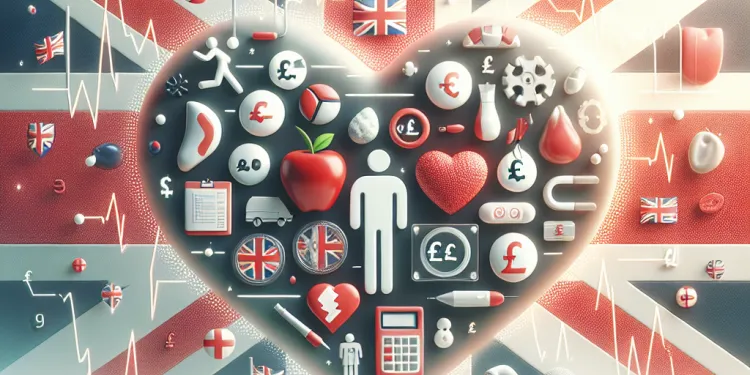
Find Help
More Items From Ergsy search
-

What complications are associated with Type 2 Diabetes?
Relevance: 100%
-

What is type 1 diabetes?
Relevance: 78%
-
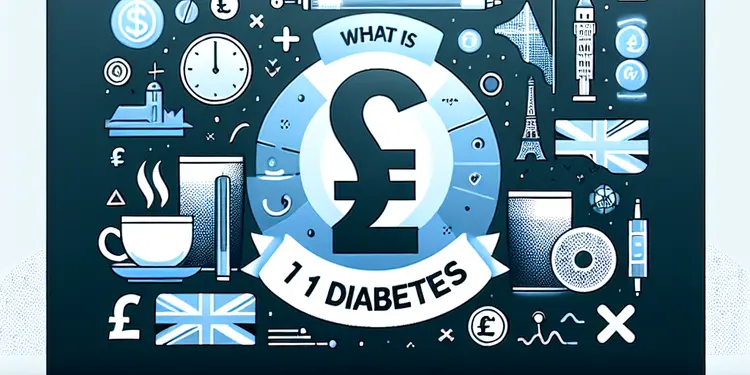
What is type 1 diabetes?
Relevance: 78%
-

What is the difference between type 1 and type 2 diabetes?
Relevance: 76%
-
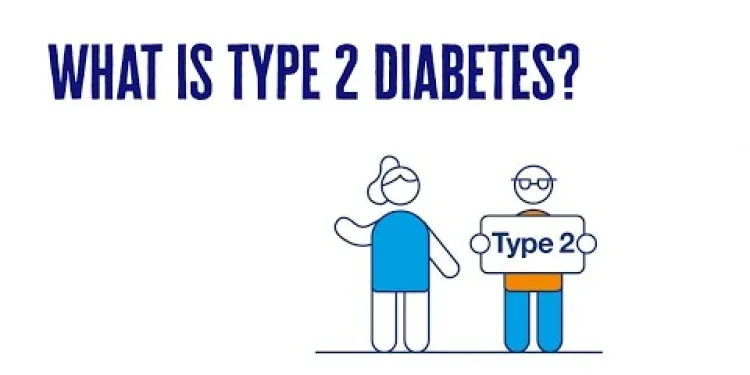
What Is Type 2 Diabetes? | 2 Minute Guide | Diabetes UK
Relevance: 76%
-

Type 1 Diabetes supporting adults to manage Type 1 diabetes
Relevance: 74%
-

How to manage type 2 diabetes
Relevance: 74%
-

Is Type 2 Diabetes hereditary?
Relevance: 73%
-

How is Type 2 Diabetes diagnosed?
Relevance: 70%
-

How is Type 2 Diabetes treated?
Relevance: 70%
-

What causes Type 2 Diabetes?
Relevance: 69%
-

Is there a genetic predisposition to type 1 diabetes?
Relevance: 69%
-

Can Type 2 Diabetes be prevented?
Relevance: 69%
-
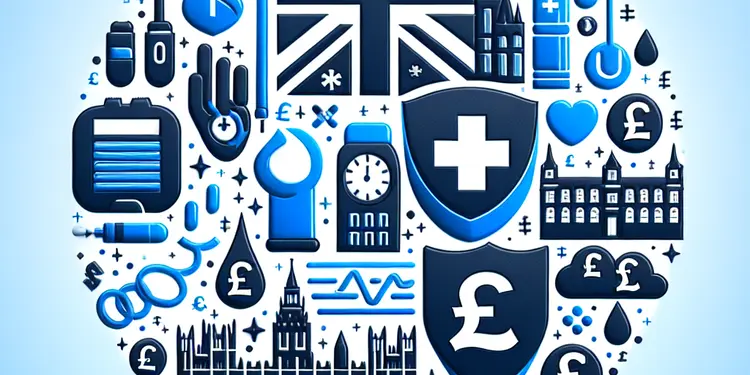
What are the benefits of early detection of type 1 diabetes?
Relevance: 69%
-

What are the symptoms of Type 2 Diabetes?
Relevance: 69%
-

Can Type 2 Diabetes go away?
Relevance: 68%
-

What is the role of insulin in Type 2 Diabetes?
Relevance: 67%
-

Is Ozempic suitable for type 1 diabetes?
Relevance: 67%
-
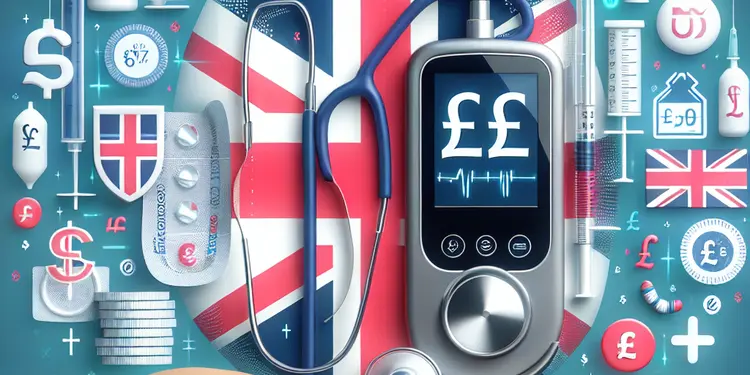
What are the limitations of type 1 diabetes screening?
Relevance: 67%
-

Can stress affect my Type 2 Diabetes?
Relevance: 67%
-
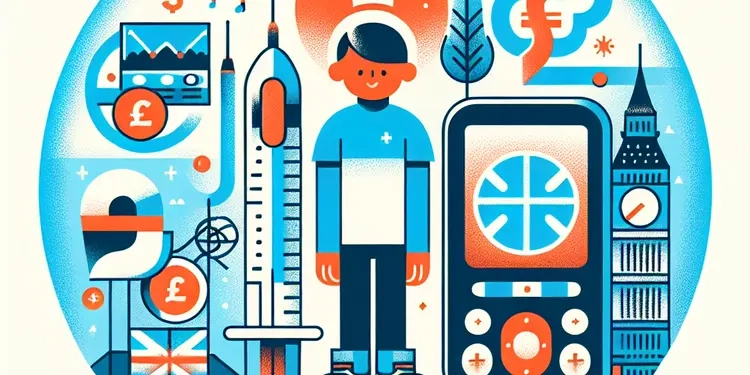
Should I screen my child for type 1 diabetes?
Relevance: 66%
-

Can Mounjaro be used in type 1 diabetes?
Relevance: 66%
-
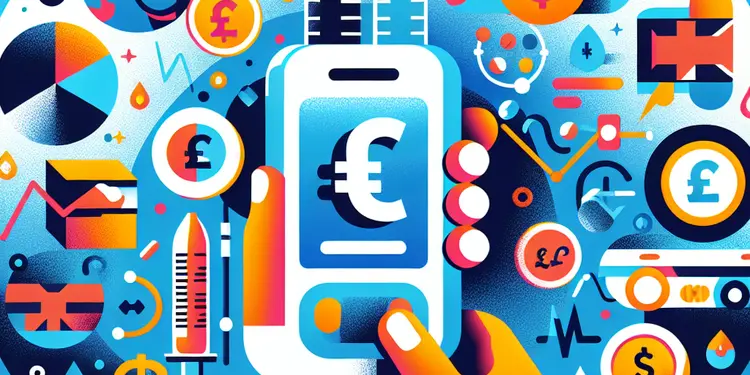
What does screening for type 1 diabetes involve?
Relevance: 65%
-
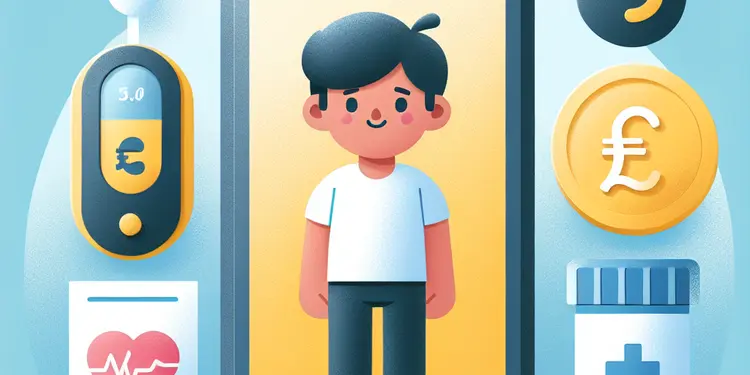
Why should I consider screening my child for type 1 diabetes?
Relevance: 64%
-
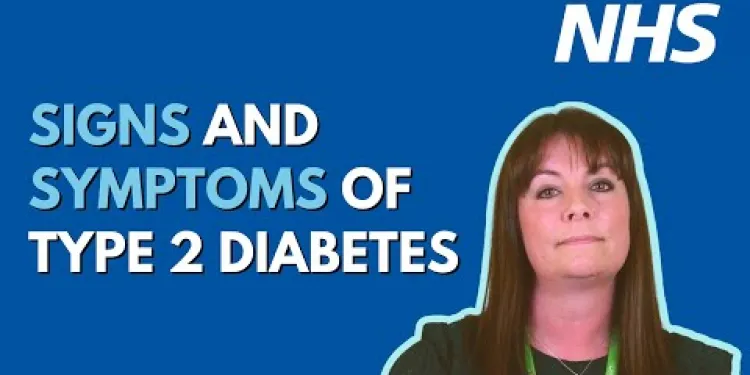
Type 2 diabetes - common signs and symptoms UHL NHS Trust
Relevance: 64%
-

Are there any symptoms of type 1 diabetes I should watch for in my child?
Relevance: 63%
-
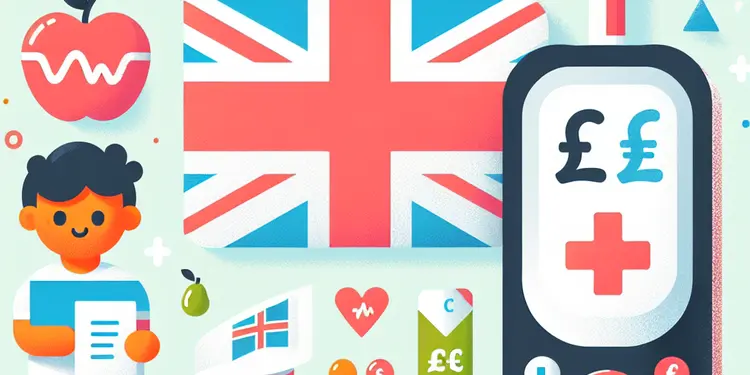
At what age should my child be screened for type 1 diabetes?
Relevance: 61%
-

NHS Diabetes Prevention Programme; Preventing Type 2 and improving outcomes for people with diabetes
Relevance: 61%
-
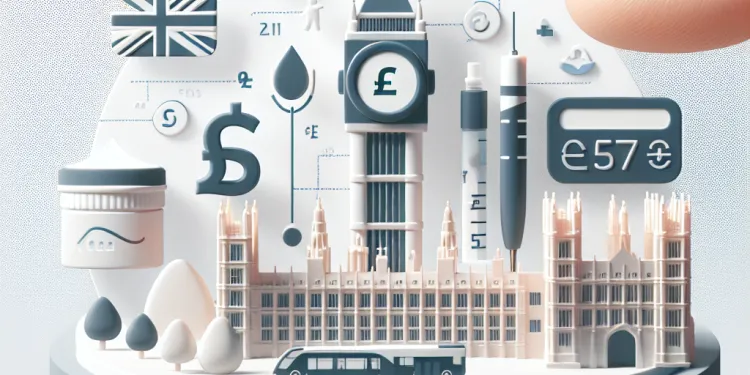
Is Wegovy used for type 2 diabetes management?
Relevance: 61%
-
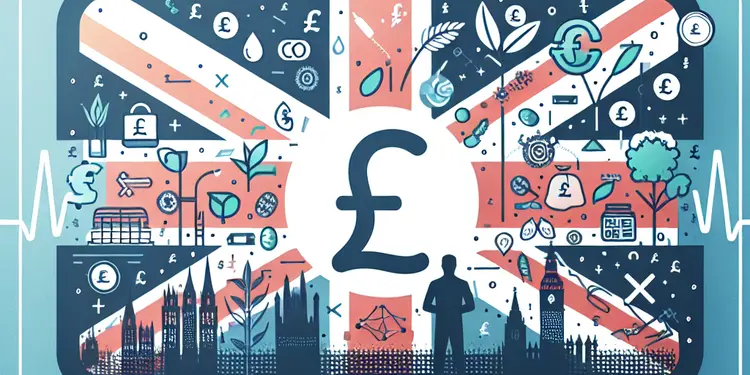
Can environmental factors contribute to type 1 diabetes?
Relevance: 61%
-

How accurate are the tests for predicting type 1 diabetes?
Relevance: 60%
-

Are there any clinical trials for preventing type 1 diabetes?
Relevance: 60%
-

Where can I have my child screened for type 1 diabetes?
Relevance: 60%
-

Does insurance cover type 1 diabetes screening?
Relevance: 60%
-
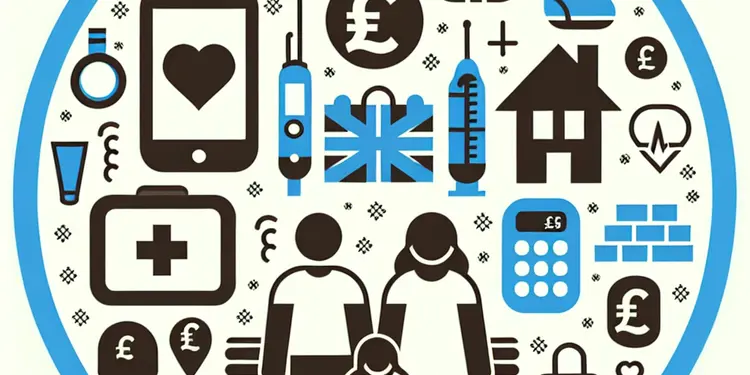
What support is available for families dealing with type 1 diabetes?
Relevance: 60%
-
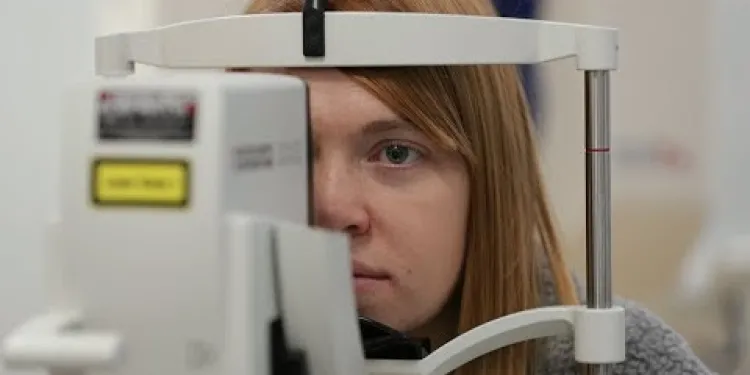
Patient voices in type one diabetes - I would have done things differently.
Relevance: 58%
-

Where can I find support for managing Type 2 Diabetes in the UK?
Relevance: 58%
-
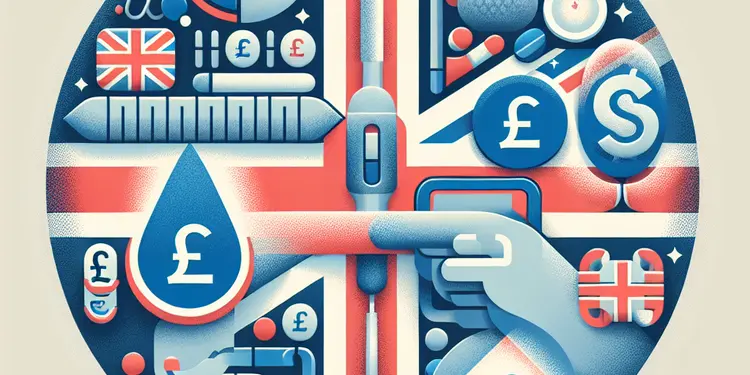
Should siblings of a child with type 1 diabetes also be screened?
Relevance: 57%
-
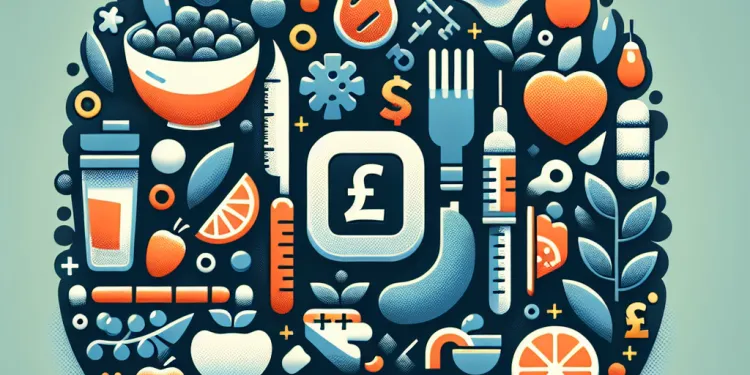
What can I eat if I have Type 2 Diabetes?
Relevance: 54%
-

What lifestyle changes can lower my child's risk of type 1 diabetes?
Relevance: 54%
What Complications Are Associated with Type 2 Diabetes?
Type 2 diabetes, a chronic condition affecting the regulation of blood sugar, is prevalent in the UK and can lead to a host of complications if not managed effectively. It is characterised by insulin resistance and a gradual failure of pancreatic beta cells, which can result in an array of health issues affecting various parts of the body.
Cardiovascular Disease
One of the most serious complications associated with Type 2 diabetes is an increased risk of cardiovascular disease. People with diabetes are two to four times more likely to suffer from heart disease or stroke than those without the condition. High blood sugar levels can damage blood vessels and the nerves that control the heart, leading to issues such as coronary artery disease, heart attacks, and strokes.
Neuropathy
Diabetic neuropathy, or nerve damage, is another common complication. High blood sugar over time can injure the walls of tiny blood vessels that nourish nerves, especially in the legs. This can cause tingling, numbness, burning, or pain, typically beginning at the tips of the toes or fingers and gradually spreading upward. If left untreated, this can lead to a loss of sensation and an increased risk of injury.
Kidney Damage
Kidney damage, or diabetic nephropathy, is also a significant concern. The kidneys contain millions of tiny blood vessel clusters that filter waste from the blood. Diabetes can damage this delicate filtering system, leading to kidney failure or irreversible end-stage kidney disease, which may require dialysis or a kidney transplant.
Retinopathy
Diabetes can also have a profound impact on vision. Diabetic retinopathy arises from damage to the blood vessels of the retina and is a leading cause of blindness in adults. Early symptoms often go unnoticed, so regular eye exams are crucial for detection and prevention of vision loss.
Foot Damage
Foot complications are common among people with Type 2 diabetes. Injuries and infections can occur due to poor circulation and nerve damage in the feet. A lack of sensation can mean that minor injuries go unnoticed and untreated, leading to ulcers and serious infections that might necessitate amputation.
Skin Conditions
Individuals with Type 2 diabetes are more prone to skin conditions, including bacterial and fungal infections. Skin complications are often the first visible signs of diabetes, and maintaining good skin care and blood sugar control can help mitigate these issues.
Conclusion
Type 2 diabetes is associated with various significant complications that can impact quality of life and life expectancy. Effective management, including regular health check-ups, monitoring blood sugar levels, and adhering to medical advice, is crucial in preventing or delaying these complications. Public awareness and education on diabetes management can have a positive impact on reducing associated health risks in the UK.
What Problems Can Happen with Type 2 Diabetes?
Type 2 diabetes is a long-lasting health problem. It makes it hard to control blood sugar. Many people in the UK have it. If you don't take care of it, it can cause other health problems. In Type 2 diabetes, your body does not use insulin well. Over time, this can hurt your body in many ways.
Heart Disease
People with Type 2 diabetes can have heart problems. They can get heart disease or have a stroke more easily than people without diabetes. High blood sugar can hurt your heart and blood vessels. This can lead to heart attacks and strokes.
Nerve Damage
Type 2 diabetes can hurt your nerves. This is called neuropathy. High blood sugar can hurt small blood vessels that help your nerves. This happens mostly in the legs. It can make your feet tingle or feel numb. Sometimes it causes pain or a burning feeling. If you do not take care of it, you might not feel injuries, which can be dangerous.
Kidney Problems
Diabetes can also harm your kidneys. Your kidneys help clean your blood. Diabetes can hurt the small filters in your kidneys. This can lead to kidney failure. Sometimes, people need a machine to clean their blood, or they may need a new kidney.
Eye Problems
Diabetes can affect your eyes, causing a problem called diabetic retinopathy. This happens when the blood vessels in your eyes get damaged. It can make you go blind if not found early. Regular eye check-ups are important to protect your vision.
Foot Problems
Diabetes can cause foot problems. Because of poor feeling in your feet, small injuries or infections can be missed and get worse. This might lead to big problems like ulcers or even removal of a toe or foot.
Skin Problems
People with Type 2 diabetes can have skin problems. They might get more bacterial or fungal infections. Good skin care and keeping blood sugar levels steady can help keep these problems away.
Conclusion
Type 2 diabetes can cause many serious health problems. It is important to manage it well with regular check-ups and by keeping blood sugar levels steady. Learning about how to manage diabetes can help prevent these problems. If you have diabetes, you should see your doctor often and follow their advice to stay healthy.
Frequently Asked Questions
What are common complications associated with Type 2 Diabetes?
Common complications include cardiovascular disease, nerve damage (neuropathy), kidney damage (nephropathy), eye damage (retinopathy), foot damage, skin conditions, and more.
How does Type 2 Diabetes affect cardiovascular health?
Type 2 Diabetes can lead to an increased risk of heart disease, hypertension, and stroke due to the damage high blood sugar causes to blood vessels.
What is diabetic neuropathy and how is it related to Type 2 Diabetes?
Diabetic neuropathy is nerve damage caused by prolonged high blood sugar levels, leading to symptoms like pain, tingling, and numbness, particularly in the feet.
How does Type 2 Diabetes lead to kidney damage?
High blood sugar can damage the delicate filtering system in your kidneys over time, leading to diabetic nephropathy, which may progress to kidney failure if untreated.
What is diabetic retinopathy?
Diabetic retinopathy is an eye condition caused by damage to the blood vessels in the retina due to high blood sugar levels, potentially leading to blindness.
Can Type 2 Diabetes lead to skin complications?
Yes, people with Type 2 Diabetes are prone to skin conditions such as bacterial and fungal infections and itching.
Why are foot problems common in people with Type 2 Diabetes?
Neuropathy and reduced blood flow to the feet increase the risk of foot complications, which can lead to serious infections or even amputation.
How does diabetes increase the risk of infections?
High blood sugar levels can weaken the immune system, making individuals with diabetes more susceptible to various infections.
Can Type 2 Diabetes affect mental health?
Yes, managing Type 2 Diabetes can lead to stress, and the condition is associated with an increased risk of depression and anxiety.
How does diabetes impact oral health?
Diabetes increases the risk of gum disease, dry mouth, cavities, and other oral health issues due to high glucose levels in saliva.
What is the link between Type 2 Diabetes and erectile dysfunction?
Diabetes can damage blood vessels and nerves, leading to erectile dysfunction in men.
Is there a connection between diabetes and hearing loss?
Hearing loss is more common in people with diabetes, possibly due to damage to the blood vessels and nerves of the inner ear.
What is diabetic gastroparesis?
Gastroparesis is a condition where the stomach cannot empty itself in a normal way, often caused by nerve damage from diabetes.
How does Type 2 Diabetes lead to joint problems?
Diabetes can cause joint complications like diabetic hand syndrome and osteoarthritis due to poor blood circulation and inflammation.
Can Type 2 Diabetes lead to sleep apnea?
Yes, people with Type 2 Diabetes have higher rates of sleep apnea, which is a sleep disorder characterized by interrupted breathing.
What are the risks of diabetic foot ulcers?
Diabetic foot ulcers can lead to serious infections and complications, potentially resulting in amputation if not properly treated.
Can Type 2 Diabetes increase the risk of certain cancers?
Some studies suggest that Type 2 Diabetes may increase the risk of cancers such as liver, pancreas, colon, endometrial, and breast cancer.
How does diabetes affect the body's ability to heal wounds?
High blood sugar levels can impair blood flow and damage nerves, leading to slower healing of wounds and increased risk of infection.
What is the impact of diabetes on the digestive system?
Diabetes can lead to digestive issues such as constipation, diarrhea, and gastroparesis due to neuropathy affecting the digestive process.
How can managing blood sugar levels help prevent complications of Type 2 Diabetes?
Consistently managing blood sugar levels through diet, exercise, and medication can help prevent or delay many of the complications associated with Type 2 Diabetes.
What problems can happen with Type 2 Diabetes?
Sometimes, people can have health problems like:
- Heart disease
- Nerve problems
- Kidney problems
- Eye problems
- Foot problems
- Skin problems
Reading tools like read-aloud software and using audiobooks can help. Drawing pictures or using simple charts can make this information easier.
How does Type 2 Diabetes impact heart health?
Type 2 Diabetes can make your heart sick.
Here is how it happens:
- It can make your blood vessels stiff. This is not good for your heart.
- It might cause too much sugar in your blood, which can hurt your heart and body.
- Look after your heart by eating healthy food and exercising.
For help, talk to a doctor or nurse. They can give good advice. Using pictures or apps may also be helpful to understand how to keep your heart healthy.
If you have Type 2 Diabetes, your blood sugar is too high. This can hurt your heart and blood vessels. It can make you more likely to have heart problems, high blood pressure, or a stroke.
Using pictures or videos can help you understand more about these health issues. You can also ask a doctor or nurse if you have questions. There are apps and websites that can give you easy-to-read info about diabetes. Talking with friends or family can also be helpful.
What is diabetic neuropathy and how is it related to Type 2 Diabetes?
Diabetic neuropathy is a type of nerve damage.
You can get it if you have Type 2 Diabetes.
High sugar in the blood can hurt your nerves over time.
This can make your feet and hands feel numb or painful.
Here are some ways to help:
- Check your blood sugar levels.
- Eat healthy foods.
- Exercise regularly.
- See your doctor for advice.
Diabetic neuropathy is when diabetes hurts your nerves. This can happen if your blood sugar is high for a long time. It can make your feet hurt, feel tingly, or go numb.
How Can Type 2 Diabetes Harm Your Kidneys?
Type 2 Diabetes can hurt your kidneys over time. It can make it hard for your kidneys to clean your blood. Here is how it happens:
- Too much sugar in your blood can damage tiny blood vessels in your kidneys.
- Damaged blood vessels mean your kidneys cannot clean your blood well.
- When your kidneys do not work well, waste stays in your body.
To help take care of your kidneys:
- Check your blood sugar levels often.
- Eat healthy foods and stay active.
- Go to the doctor for regular check-ups.
These steps can help keep your kidneys healthy.
Too much sugar in your blood can hurt your kidneys. Kidneys have tiny filters to clean your blood. If sugar stays high, these filters get damaged. This can lead to a problem called diabetic nephropathy. If it gets worse, it can make your kidneys stop working. This is called kidney failure. It's important to see a doctor and get help.
What is diabetic retinopathy?
Diabetic retinopathy is an eye problem that can happen to people with diabetes. It affects the back part of the eye called the retina.
What does it do? It can make it hard to see clearly and might cause blindness if not treated. This happens because when you have diabetes, high blood sugar can damage the tiny blood vessels in your eyes.
Who can help? If you have diabetes, doctors can check your eyes regularly. They can find any problems early and help keep your eyes healthy.
How can you help yourself? Keep your blood sugar levels under control. Eat healthy foods, exercise, and take your medicine. These things can help keep your eyes safe.
Use tools like glasses to see better. Talk with a doctor for more help.
Diabetic retinopathy is an eye problem. It happens when high blood sugar hurts the tiny blood vessels in the eye. This can make you blind.
Can Type 2 Diabetes cause skin problems?
Yes, people with Type 2 Diabetes can get skin problems. These problems include infections from germs and fungus, as well as itching.
Why do people with Type 2 Diabetes often have foot problems?
People with Type 2 Diabetes can get foot problems because: - High sugar levels in their blood can damage nerves. This can make it hard to feel pain in the feet. - Blood flow to the feet can be poor. This means cuts or sores heal slowly. - They may not notice cuts or sores on their feet. To help take care of your feet, you can: - Check your feet every day for cuts or changes. - Wear comfy shoes that fit well. - Ask a doctor or nurse to check your feet regularly. If you have trouble reading, you can ask for help from a family member or use a text-to-speech tool to listen to the information.Having problems with nerves and blood flow to your feet can make foot problems worse. This might cause bad infections or even mean you need to have a foot or toe removed.
If you have trouble reading, you can ask someone for help. You can also use tools like audiobooks or apps that read text out loud.
Why does diabetes make it easier to get sick?
When sugar levels in the blood are high, it can make the body weaker. This means people with diabetes can get sick more easily.
Can Type 2 Diabetes affect the way we feel?
People with Type 2 Diabetes may sometimes feel sad or worried. This is normal.
If you have Diabetes and feel this way, talk to someone you trust. They can help.
There are things that can make you feel better, like talking to a doctor or counselor.
You can also try to join a support group to meet other people with Diabetes. They can share tips and help each other feel better.
Yes, taking care of Type 2 Diabetes can cause stress. It can also make people feel more sad or worried.
How does diabetes affect your mouth?
When you have diabetes, it can change how your mouth feels.
This means you might get more mouth problems like sore gums or cavities.
If you have diabetes, it's important to:
- Brush your teeth twice every day.
- Floss your teeth daily.
- Visit the dentist regularly.
Ask a grown-up for help if you need it!
Diabetes can make it easier to get gum disease, have a dry mouth, get cavities, and have other problems with your mouth. This happens because there is too much sugar in your spit.
How are Type 2 Diabetes and erectile dysfunction connected?
Type 2 Diabetes is a disease that makes it hard for your body to use sugar, which can lead to high blood sugar levels. This can damage your blood vessels and nerves.
Erectile dysfunction means you have trouble getting or keeping an erection. It is often linked to blood flow problems.
When someone has Type 2 Diabetes, the high blood sugar can hurt the blood vessels and nerves. This can make it hard to get enough blood to the penis, which can cause erectile dysfunction.
It is important to manage Type 2 Diabetes by eating healthy, exercising, and taking medicine if needed. This can help prevent erectile dysfunction.
If you have problems, talk to a doctor. They can help with advice and treatment. You can also use tools like large print books or audiobooks to make reading easier.
Diabetes is an illness that can hurt blood vessels and nerves. This can make it hard for men to get or keep an erection.
Can diabetes make it hard to hear?
People with diabetes have hearing problems more often. This might happen because diabetes can hurt the tiny blood tubes and nerves in the ear.
What is diabetic gastroparesis?
Diabetic gastroparesis is a tummy problem. It happens when diabetes makes the stomach slow down. This means food stays in the stomach too long. It can cause tummy pain, feeling full quickly, and feeling sick.
For help, talk to a doctor. They can give advice. Eating small meals slowly and chewing well can help. There are apps and tools that can remind you to eat slowly.
Gastroparesis is when the stomach has trouble emptying the food. This can happen because the nerves in the stomach are not working properly. Sometimes, diabetes can hurt these nerves.
How can Type 2 Diabetes cause joint pain?
Type 2 Diabetes is an illness that can make you feel tired and need more energy. It can also cause problems like joint pain.
Here is how it happens:
- Too much sugar: When there is too much sugar in your blood, it can hurt your joints.
- Weight gain: Diabetes can make you gain weight. Extra weight can put pressure on your joints.
- Nerve damage: Diabetes might hurt the nerves that help you feel things in your joints. This can make them hurt.
How you can help yourself:
- Move your body: Simple exercises can keep your joints healthy.
- Eat good food: Eating less sugar can help manage diabetes.
- Go to the doctor: Get regular check-ups to keep a watch on your health.
Tools like picture cards or using simple words to explain can make learning about diabetes easier.
Diabetes can make your joints hurt. It can cause problems like stiff hands and sore knees. This happens because blood doesn't flow well and things can swell up inside.
Can Type 2 Diabetes Cause Sleep Problems?
People with Type 2 Diabetes might have a harder time sleeping. One problem they could have is sleep apnea. This means you stop breathing for a short time when you sleep.
If you have Type 2 Diabetes and find it hard to sleep, it can help to talk to a doctor. They can give advice on what to do.
Tools like a sleep diary can help. Write down when you go to bed and wake up. This can help you see if there are problems.
Using a CPAP machine might also help. This is a mask you wear at night to help you breathe better.
Yes, people with Type 2 Diabetes often have trouble while sleeping. They might stop breathing for short times while sleeping. This is called sleep apnea.
What can happen with diabetic foot sores?
If you have diabetes, you might get sores on your feet. These are called "foot ulcers." It's important to know what can happen if you have them.
Here is what can happen:
- The sore can get bigger.
- Germs can get in and cause an infection.
- If the sore gets too bad, it might take a long time to heal.
- In very serious cases, you might need to see a doctor quickly.
Here are some tips to help:
- Check your feet every day for cuts or sores.
- Keep your feet clean.
- Wear shoes that fit well.
- Talk to your doctor if you see any changes in your feet.
You can also ask someone you trust to help you check your feet regularly.
If someone with diabetes gets a sore, called a foot ulcer, it can cause bad infections. These can become serious problems and might lead to cutting off a foot or toe if the sore is not treated right.
Can Type 2 Diabetes make it more likely to get some cancers?
Some doctors think that if you have Type 2 Diabetes, you might have a higher chance of getting certain types of cancer. These types of cancer could be liver, pancreas, colon, endometrium, and breast cancer.
How does diabetes make it harder for the body to heal wounds?
Diabetes can make it take longer for cuts or sores to get better. Here’s how:
- Blood problems: Diabetes can make it harder for blood to flow to wounds. This can slow healing.
- Nerve damage: Sometimes, diabetes can hurt nerves. You might not feel pain as much, so you might not notice sores right away.
- Infections: People with diabetes can get infections more easily, which can make it harder for wounds to heal.
Tips to help:
- Check your skin every day. Look for cuts or sores.
- Keep cuts clean and covered.
- Talk to a doctor if a cut does not get better.
When sugar levels in the blood are high, it can cause problems. It can slow down how well blood moves in the body and can hurt the nerves. This makes cuts and wounds heal more slowly and can cause infections more easily.
How does diabetes affect the tummy?
Diabetes can cause tummy problems. You might get constipation (hard poo), diarrhea (runny poo), or gastroparesis (slow stomach emptying). This happens because diabetes can hurt the nerves that help your stomach work.
How can keeping blood sugar levels steady help people with Type 2 Diabetes?
Keeping blood sugar levels just right is very important for people with Type 2 Diabetes. It can stop or delay problems like:
- Eye trouble
- Kidney trouble
- Heart trouble
- Foot pain
Here are ways to manage blood sugar:
- Eat healthy meals.
- Exercise regularly.
- Check blood sugar levels often.
- Take medicine from the doctor if needed.
Using charts or apps can also help keep track of blood sugar levels.
Eating healthy food, moving your body, and taking medicine can help keep your blood sugar levels steady. This can stop or slow down problems from Type 2 Diabetes.
Useful Links
This website offers general information and is not a substitute for professional advice.
Always seek guidance from qualified professionals.
If you have any medical concerns or need urgent help, contact a healthcare professional or emergency services immediately.
Some of this content was generated with AI assistance. We’ve done our best to keep it accurate, helpful, and human-friendly.
- Ergsy carfully checks the information in the videos we provide here.
- Videos shown by Youtube after a video has completed, have NOT been reviewed by ERGSY.
- To view, click the arrow in centre of video.
- Most of the videos you find here will have subtitles and/or closed captions available.
- You may need to turn these on, and choose your preferred language.
- Go to the video you'd like to watch.
- If closed captions (CC) are available, settings will be visible on the bottom right of the video player.
- To turn on Captions, click settings .
- To turn off Captions, click settings again.
More Items From Ergsy search
-

What complications are associated with Type 2 Diabetes?
Relevance: 100%
-

What is type 1 diabetes?
Relevance: 78%
-

What is type 1 diabetes?
Relevance: 78%
-

What is the difference between type 1 and type 2 diabetes?
Relevance: 76%
-

What Is Type 2 Diabetes? | 2 Minute Guide | Diabetes UK
Relevance: 76%
-

Type 1 Diabetes supporting adults to manage Type 1 diabetes
Relevance: 74%
-

How to manage type 2 diabetes
Relevance: 74%
-

Is Type 2 Diabetes hereditary?
Relevance: 73%
-

How is Type 2 Diabetes diagnosed?
Relevance: 70%
-

How is Type 2 Diabetes treated?
Relevance: 70%
-

What causes Type 2 Diabetes?
Relevance: 69%
-

Is there a genetic predisposition to type 1 diabetes?
Relevance: 69%
-

Can Type 2 Diabetes be prevented?
Relevance: 69%
-

What are the benefits of early detection of type 1 diabetes?
Relevance: 69%
-

What are the symptoms of Type 2 Diabetes?
Relevance: 69%
-

Can Type 2 Diabetes go away?
Relevance: 68%
-

What is the role of insulin in Type 2 Diabetes?
Relevance: 67%
-

Is Ozempic suitable for type 1 diabetes?
Relevance: 67%
-

What are the limitations of type 1 diabetes screening?
Relevance: 67%
-

Can stress affect my Type 2 Diabetes?
Relevance: 67%
-

Should I screen my child for type 1 diabetes?
Relevance: 66%
-

Can Mounjaro be used in type 1 diabetes?
Relevance: 66%
-

What does screening for type 1 diabetes involve?
Relevance: 65%
-

Why should I consider screening my child for type 1 diabetes?
Relevance: 64%
-

Type 2 diabetes - common signs and symptoms UHL NHS Trust
Relevance: 64%
-

Are there any symptoms of type 1 diabetes I should watch for in my child?
Relevance: 63%
-

At what age should my child be screened for type 1 diabetes?
Relevance: 61%
-

NHS Diabetes Prevention Programme; Preventing Type 2 and improving outcomes for people with diabetes
Relevance: 61%
-

Is Wegovy used for type 2 diabetes management?
Relevance: 61%
-

Can environmental factors contribute to type 1 diabetes?
Relevance: 61%
-

How accurate are the tests for predicting type 1 diabetes?
Relevance: 60%
-

Are there any clinical trials for preventing type 1 diabetes?
Relevance: 60%
-

Where can I have my child screened for type 1 diabetes?
Relevance: 60%
-

Does insurance cover type 1 diabetes screening?
Relevance: 60%
-

What support is available for families dealing with type 1 diabetes?
Relevance: 60%
-

Patient voices in type one diabetes - I would have done things differently.
Relevance: 58%
-

Where can I find support for managing Type 2 Diabetes in the UK?
Relevance: 58%
-

Should siblings of a child with type 1 diabetes also be screened?
Relevance: 57%
-

What can I eat if I have Type 2 Diabetes?
Relevance: 54%
-

What lifestyle changes can lower my child's risk of type 1 diabetes?
Relevance: 54%


